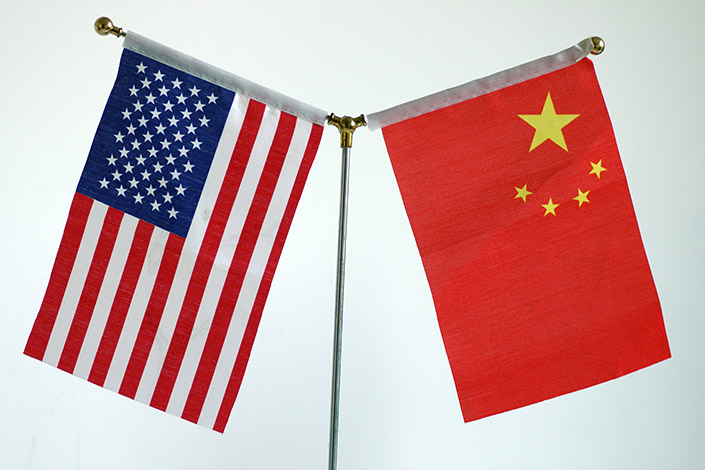Xi, Biden Hold First Talks in Seven Months in Bid to Stabilize Rocky Relations

Chinese President Xi Jinping and his U.S. counterpart Joe Biden have expressed their hopes of promoting cooperation, managing competition and preventing “unintended conflict” between the world’s two most powerful nations during a phone call Friday, in a sign of willingness by both leaders to stabilize the tense bilateral relationship.
The two spoke for the second time since Biden assumed the presidency and following their first call in February, in what was described as a “candid, in-depth and extensive strategic communication and exchanges on China-U.S. relations and relevant issues of mutual interest,” according to a statement from the Chinese Ministry of Foreign Affairs.
During the discussion, Xi said that “due to the U.S. policy on China, the China-U.S. relationship has run into serious difficulty.” He said, “Getting the relationship right is not an option, but something we must do and must do well.”
The phone summit came a week after China and the U.S., the world’s two largest greenhouse gas emitters, failed to reach an agreement in the latest round of climate talks in East China’s city of Tianjin. Many feared that it could have spelled the collapse of climate cooperation between the two sides in the run-up to the United Nations’ climate conference in November.
In Tianjin, senior Chinese officials ― including Politburo member Yang Jiechi, Vice Premier Han Zheng and Foreign Minister Wang Yi ― blamed the U.S. for the worsening of the bilateral ties, which could jeopardize cooperation in climate. In response, visiting U.S. climate envoy John Kerry insisted on keeping politics out of talks, saying “climate is not ideological, not partisan, and not a geostrategic weapon.”
On Friday Xi appeared to strike a slightly more conciliatory tone, saying the two sides “may continue their engagement and dialogue to advance coordination and cooperation on climate change, Covid-19 response and economic recovery as well as on major international and regional issues.”
But he pointed out that climate cooperation should also be carried out on the basis of “respecting each other’s core concerns and properly managing differences.”
China has laid out detailed ground rules for the Biden administration when engaging on bilateral issues, grouping them under the “three bottom lines” and “two lists” of demands that Beijing believes will set the stage for bringing ties back on track.
These include the U.S. using caution on matters related to Taiwan, Hong Kong and the South China Sea, respecting China’s sovereignty and security, and ceasing interference in its internal affairs, among others.
Xi also added that the two sides “may tap more potential of cooperation to inject more positive dynamics into the relationship.”
For his part, Biden said the discussion, “was part of the United States’ ongoing effort to responsibly manage the competition” between the U.S. and China, as well as an opportunity to talk about “areas where our interests, values, and perspectives diverge,” according to a White House statement.
Biden “underscored the United States’ enduring interest in peace, stability, and prosperity in the Indo-Pacific and the world” with the leaders discussing the “responsibility of both nations to ensure competition does not veer into conflict,” the statement said.
Li Shuo, global climate policy advisor at Greenpeace, told Caixin that with only a few weeks until the year-end climate summit in Glasgow, climate change represents one of the very few areas where “the US and China can and should make near-term progress” and one that “the two sides can truly not afford decoupling.”
“There is still a chance for China to signal stronger climate ambition,” he said. “Doing so could help manage the most consequential bilateral relationship in the world.”
Contact reporter Lu Zhenhua (zhenhualu@caixin.com) and editor Michael Bellart (michaelbellart@caixin.com)
Download our app to receive breaking news alerts and read the news on the go.
Get our weekly free Must-Read newsletter.

- PODCAST
- MOST POPULAR






